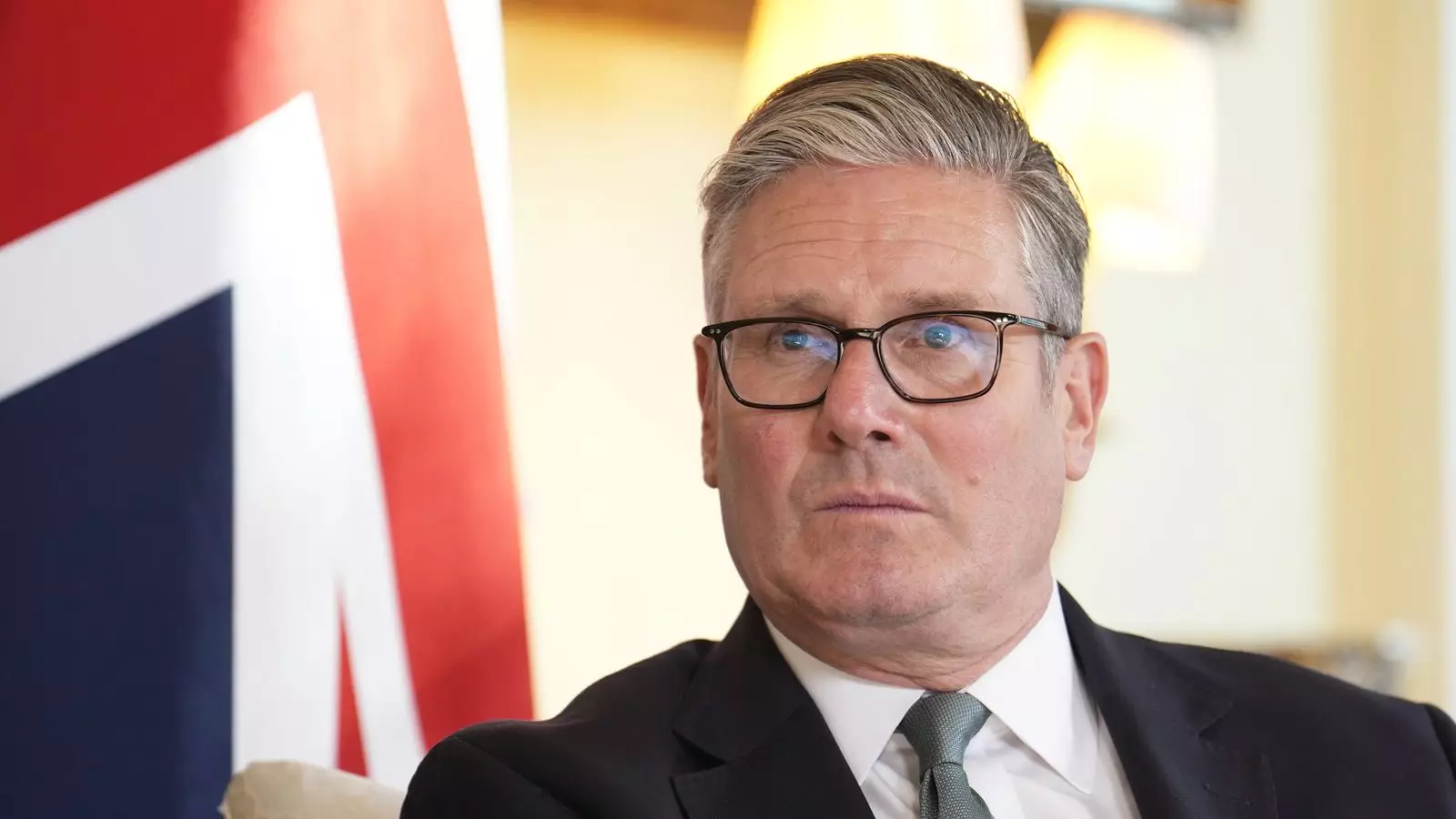In the aftermath of the recent U.S. military strikes on Iranian nuclear facilities, the international community finds itself at a critical juncture. Sir Keir Starmer, the leader of the UK’s Labour Party, voiced his concerns regarding the stability of the Middle East, emphasizing that the region’s equilibrium should be of paramount importance. However, the question arises: are militaristic interventions truly conducive to lasting peace and stability, or do they merely exacerbate existing tensions?
Starmer asserted that Iran’s nuclear ambitions pose a “grave threat to international security.” While there is merit to this claim, framing the entire situation solely through the lens of Iran’s nuclear program perpetuates a cycle of fear and aggression. The immediate solution advocated by Starmer—urging Iran to “return to the negotiating table”—suggests that diplomatic measures should supplant the violent rhetoric and actions currently being exchanged. But are policymakers genuinely prioritizing diplomacy, or simply paying lip service to it?
The Consequences of Military Action
While aggressive action may provide a temporary sense of relief from perceived threats, it often leads to an escalatory spiral that undermines peace efforts. Donald Trump’s declaration that key Iranian nuclear sites were “completely and fully obliterated” sounded more like a boast than a commitment to long-term security. Such a triumphalist attitude ignores the multifaceted implications of military strikes; it risks further destabilizing an already volatile region where Iran sees itself as fighting for its sovereignty.
Iran’s officials have already made clear that they are considering “all options” in response to this act of aggression, signaling the potential for unfortunate consequences that extend far beyond the immediate diplomatic fray. Iranian Foreign Minister Abbas Araghchi’s remarks about the “everlasting consequences” of the strikes should not be taken lightly. This kind of rhetoric becomes a rallying cry that unites national sentiment against foreign intervention, fostering an us-versus-them mentality that perpetuates enmity rather than reconciliation.
The Role of International Consensus
In a world where the balance of power is delicately maintained through diplomatic relationships, unilateral military action can undermine the foundation of international law and stability. UN Secretary-General Antonio Guterres described the U.S. attack as a “dangerous escalation,” highlighting the broader ramifications of such unilateral decisions. It stands to reason that for any significant progress toward lasting peace, advocates of diplomacy must engage not just with friendlies, but also with perceived adversaries through dialogue and compromise.
Those in power often overlook the fact that brute force rarely yields sustainable results. While many might applaud a show of strength, the truth is that meaningful change comes from constructing alliances founded on trust, rather than fear. To build a more peaceful world, leaders must prioritize diplomatic efforts that involve genuine engagement, rather than reactive posturing driven by a desire for immediate political gain.
The Ethical Dilemma of Realpolitik
Leaders must reckon with the ethical implications of their foreign policy strategies. While some may champion military action as a necessary evil to defend democratic values, such actions often cloak a deeper hypocrisy when weighed against the principles of international cooperation that underpin global society. A true commitment to preventing nuclear proliferation demands that we approach nations like Iran with an openness to dialogue, rather than imposing a militaristic stance that only serves to entrench opposition.
Starmer’s calls for diplomatic dialogue ring especially hollow when juxtaposed against the backdrop of U.S. military dominance. If we truly aspire to create a world free of the threats posed by nuclear weapons, it is essential to foster relationships grounded in mutual respect and understanding. A political approach that marries center-left liberal ideals with robust diplomatic efforts could rewrite the narrative on how we address international conflicts.
The future of global stability hinges on whether we choose to escalate tensions or work toward constructive engagement. In these precarious times, it is not just the question of “What are we trying to achieve?” that matters, but “How are we deciding to achieve it?”


Leave a Reply